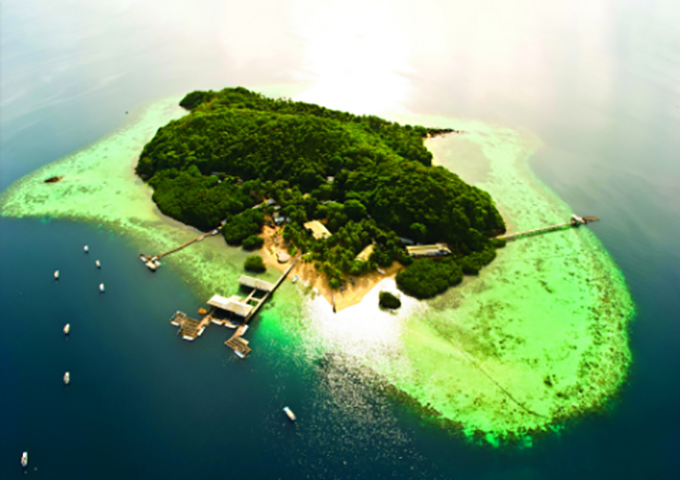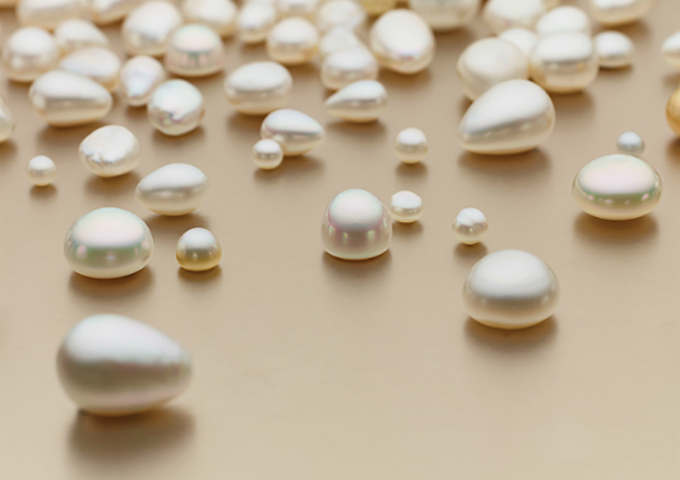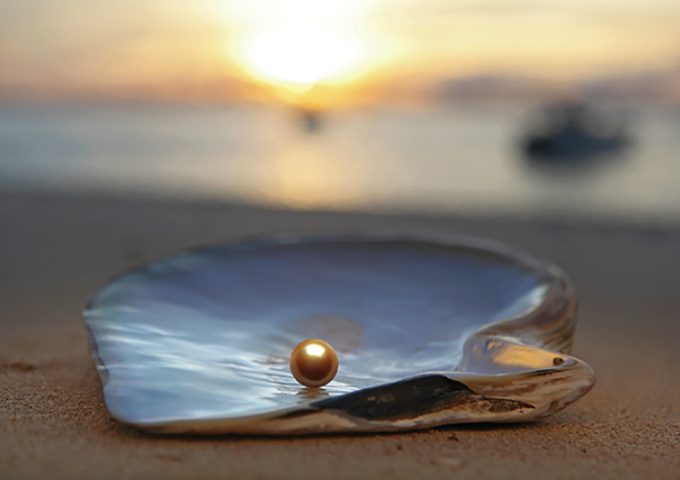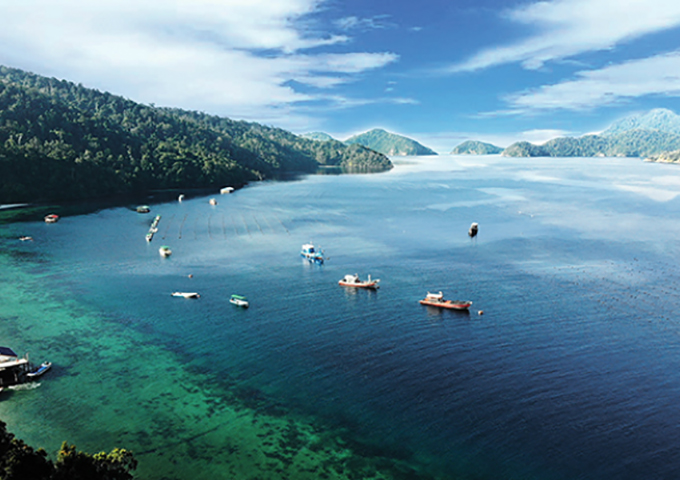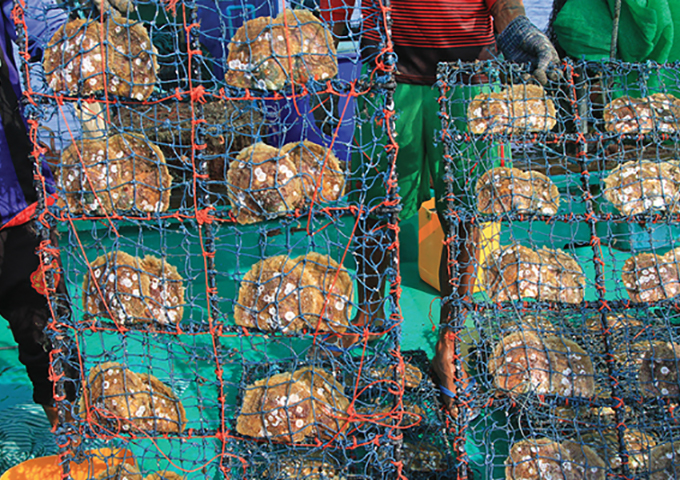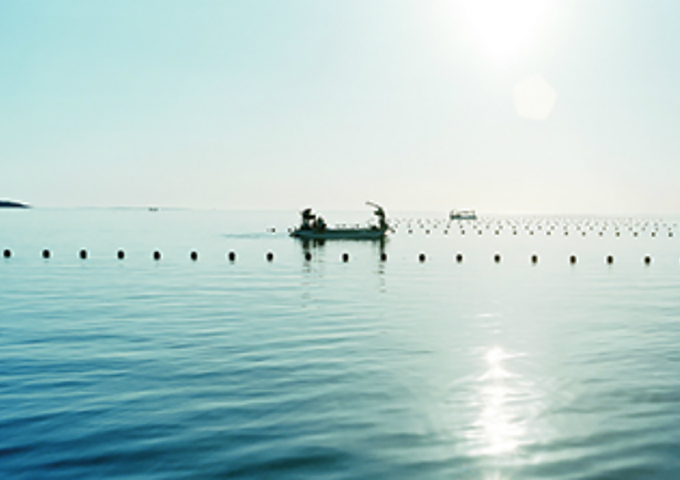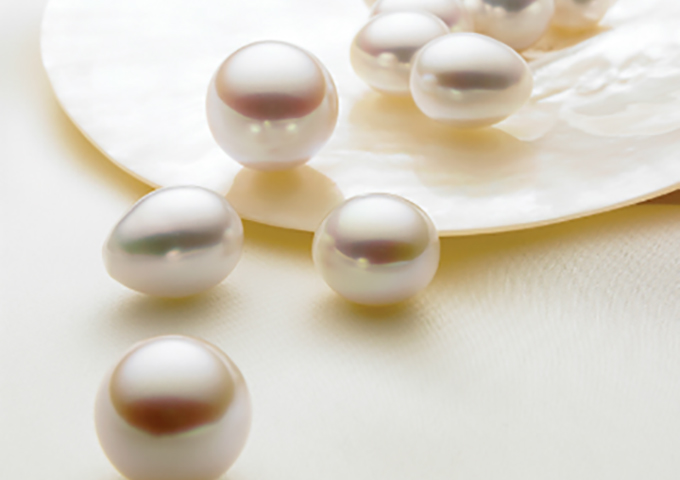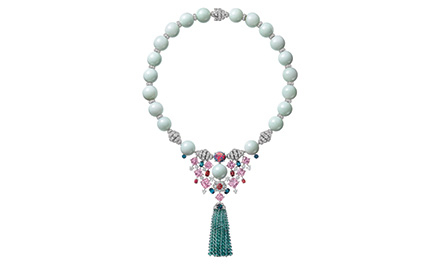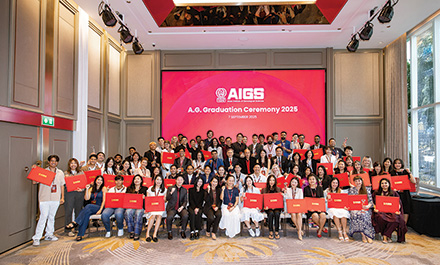Faced with environmental, macroeconomic and geopolitical uncertainties, pearl farms are envisioning an even stronger synergy between sustainable development and pearl production. JNA examines the evolution of the pearling industry and how today’s challenges and opportunities are reshaping its future.
At the heart of today’s pearl farming operations is a two-pronged approach that hinges upon sustainability and a commitment to produce top-quality pearls that will continue to captivate future generations of buyers.
Pearl manufacturers spanning the Philippines, Hong Kong, Myanmar and Australia talk about coping with multifaceted challenges, their business strategies moving forward and the indomitable charisma of pearls.
Golden heritage
Jewelmer of the Philippines has more than four decades of expertise in cultivating the rare golden South Sea pearl. Over the years, it has enjoyed tremendous success in this arena, owing to the exceptional lustre and colour of the pearls from its farms in Palawan. These qualities, in turn, bestow upon Jewelmer’s fine jewellery collections a distinctive sophistication.
The company has built a solid customer base in more than 15 countries, including the US, the UAE, Japan, China and Monaco.
Pearl farming is not without challenges though. Jacques Christophe Branellec, executive vice president and deputy CEO of Jewelmer, cited the impact of environmental changes on pearl production in a tropical country like the Philippines.
He revealed that increasingly fluctuating water temperature, ocean acidification and variations in plankton profile affect the survival rate of certain batches of oysters. Ultimately, climate change has made it tougher to produce pearls.
Jewelmer adjusted its forecasts after current production levels were nearly halved due to environmental threats. On the bright side, this only made the pearls even rarer.
“These changes present both challenges and opportunities. The main challenge is having a lower volume to cater to the global market. On the other hand, with lower biomass density comes the potential to achieve a higher-quality output that will improve the average value of our production,” noted Branellec.
The Covid-19 pandemic meanwhile presented logistical difficulties as the Philippines has been on lockdown since March. During this time, Jewelmer prioritised support for its pearl farmers, providing them with supplies and ensuring their safety and well-being.
On the business side, demand for golden South Sea pearls remains strong especially with the company boosting its online presence.
According to Branellec, buyers have a profound affinity for the rare Philippine golden South Sea pearl, which comes in an unparalleled deep and intense colour saturation, and the story behind the gem.
“Beyond this, our farms have also become centres of collaboration that demonstrate the good that humanity can inspire in and for each other – a legacy grounded in faith in the human spirit that transcends time and borders,” he continued. The company continuously develops and implements initiatives that ensure environmental protection and community empowerment.
Jewelmer and Save Palawan Seas Foundation (SPSF) have initiated projects aimed at environmental restoration at the farms and helping nearby coastal communities.
Under a comprehensive programme, more than 500 coconut trees were planted in the last few months to help minimise shoreline erosion due to global warming, and sustain the biodiversity and ecological balance of coastal areas. In addition, over 1,000 mangrove seedlings were planted in four different sites.
Jewelmer and SPSF also distributed fruit and vegetable seedlings as part of an organic vegetable farming project aimed at enabling partner communities to grow their own crops and support their daily needs. Multiple rice distribution programmes were also organised over the past three months to support over 1,000 households surrounding the farms.
Resilience and reputation
Jonathan Cheng, director of Hong Kong-based Rio Pearl, said the company’s symbiotic alliance with Orient Pearl Co in Myanmar, where its two South Sea pearl farms are located, is crucial to success.
The decades-old partnership works in perfect harmony. Orient Pearl oversees farm operations in Myanmar while Rio Pearl focuses on selling and promoting loose pearls and bespoke pearl jewellery pieces.
At the helm of these pearl companies are two young executives – Cheng for Rio Pearl and Terrence Lee for Orient Pearl – who both come from professional backgrounds unrelated to pearling. Both however are committed to bringing their family enterprises to greater heights by offering fresh business perspectives.
Top-billing Cheng’s objectives are sustainability and technology. Rio Pearl utilises mostly biodegradable materials at the farms, following Myanmar government’s strict environmental laws.
“Three things come out of the farm – the oyster, the shell and the pearl,” explained Cheng. “The pearl is our main business, but the shell is used as construction or raw material for other purposes. The oyster is given to the workers. Nothing goes to waste.”
By establishing the farms, Rio Pearl provided secluded communities around it with electricity, livelihood, access to healthcare and safe drinking water as well as education, basic infrastructure and waste management.
The farms, located near the Mergui Archipelago, are home to a dynamic community of over 400 people – each of whom plays a crucial role in the pearling process.
Pearl cultivation in Myanmar is also vulnerable to weather disruptions especially during the monsoon season, which makes traveling to and from shore difficult and sometimes dangerous. Seasonal challenges notwithstanding, Rio Pearl stays true to its mandate of farming good pearls by maintaining a thriving habitat for oysters. A rich, biodiverse marine environment is key to sustainable pearl farming. Another important factor is technological advancement. Each of Rio Pearl’s farms has a modern hatchery that helps maintain oyster quality. Having two hatcheries also allows crossbreeding and maintaining a good genetic line within both farms.
“There’s a lot of care and expertise involved in pearl cultivation – how you graft will decide the shape of the pearl or how blemished it is,” noted Cheng. “If I want to change something, I might see the results in four years – two years for the breeding process and another two to cultivate.” Through gradual improvements, Rio Pearl’s production has increased over the years alongside the quality of the harvest. Pearls are more round while the colours have become more vivid.
In the face of the Covid-19 pandemic, the South Sea pearl continues to attract buyers’ attention. According to Cheng, customers from China, the US and Europe are still placing orders for decent-quality commercial goods.
Producers from Indonesia and Tahiti, among others, are waiting for Rio Pearl to conduct pearl auctions in Hong Kong, but the gemstone and jewellery trade is on a wait-and-see stance due to the pandemic. Rio Pearl however remains optimistic.
“We are lucky to be in the pearl industry because our goods are not easily replicated; it takes significant investment, time and patience to create this material. We are hopeful that when economies pick up, the market for pearls will be even stronger,” Cheng continued.
The romance of Australian pearls
Paspaley Pearling Co Pty Ltd has blazed many trails since its inception in 1935. By the 1950s, it focused on cultivating Australian South Sea pearls off the coastal waters of north western Australia. It has since made history, setting industry standards and reshaping the business landscape with continuous innovation.
Sought after by global buyers for its unmatched lustre and size, the Australian South Sea pearl has a unique connection to nature unlike other gems since it is produced by a living organism, according to Peter Bracher, executive director of Paspaley.
“The pearls’ story begins with seafarers diving for wild oysters just as they have done for thousands of years. It is a treasure hunt that occurs in harmony with nature,” Bracher recounted. “The masculinity of the treasure hunt contrasts with the understated feminine beauty of the pearls themselves.”
Today, Paspaley faces the challenge of boosting consumer awareness of its pearls as paragons of beauty while educating the market about their “purity,” which in this context refers to being sustainable.
Pearl farming offers manifold benefits including environmental protection as well as employment, healthcare and education to the coastal communities where the farms operate.
“A pristine marine environment is essential to the production of fine-quality pearls,” noted Bracher. “We plan to continue pearling long into the future so environmental preservation is a fundamental consideration for us.”
Alongside sustainability efforts are infrastructure and technological advances. Paspaley recently established a factory in Dongguan, China to produce mother-of-pearl components for the jewellery and watch industries. The facility was designed to meet social and environmental standards required by international brands.
Another exceptional element of Paspaley’s operations is the use of wild oysters to produce pearls, which requires significant investment in infrastructure. This includes custom-built vessels that allow the company to perform the delicate seeding and harvest operations with minimum stress to the oysters. The technology and processes used on board the vessels are developed in-house.
Faced with the threat of the Covid-19 crisis and the tentative closure of major markets in the first half of the year, Paspaley developed an online auction portal where it has been holding monthly sales since April.
Each of the online auctions has seen a gradual increase in both price and volume, revealed Bracher.
Paspaley is bent on capitalising on the potential of digitalisation as a means to expand its consumer reach. “The market of the future will be more generational than geographic. As social consciousness and confidence in online purchasing increase, global consumers will be prepared to look further afield for products that meet their expectations in terms of social responsibility.
This is likely to drive demand from places that weren’t previously considered significant potential markets,” noted Bracher.
The company remains optimistic, inspired by the industry’s resilience and adaptability amid volatile market conditions. According to Bracher, Paspaley is prepared to meet discerning consumers’ ever-increasing demand for higher standards of social responsibility and products that express their individuality. “This would bode very well for Australian South Sea pearls,” he continued.



